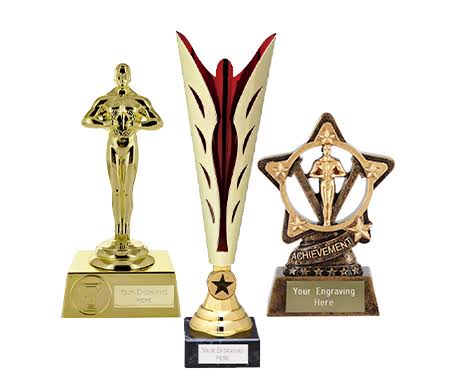Table of Contents
- Grasping the Effect of Corporate Acknowledgment
- Kinds of Corporate Honors and Their Importance
- Best Practices for Carrying out a Corporate Acknowledgment Program
- The Job of Authority in Cultivating a Culture of Appreciation
- Corporate Awards and Brand Image
- Designing an Employee Recognition Event
- Creative Recognition Ideas Beyond Traditional Awards
- Estimating the Viability of Corporate Honor Projects
- Acknowledgment in a Different Labor force
- Looking Forward: The Fate of Work environment Acknowledgment
Key Takeaways
- Employee recognition is a potent psychological motivator that drives productivity and commitment.
- Different types of awards each carry unique significance and reinforce specific corporate values.
- Straightforward, fair, and continuous acknowledgment is basic to the progress of a corporate honor program.
- Powerful administration is fundamental for supporting a hierarchical culture that values appreciation.
- A well-managed corporate awards system can significantly strengthen external brand image.
- Creative recognition approaches complement traditional awards and can be tailored to individual preferences.
- Measurement of program effectiveness is crucial for continuous improvement of recognition efforts.
- Inclusive and equitable recognition practices are fundamental in a diverse and modern workplace.
- Technological advancements are changing the landscape of employee recognition, leading to innovative practices.
Understanding the Impact of Corporate Recognition
The impact of employee recognition on hierarchical achievement couldn’t possibly be more significant. Affirmation for a wonderful piece of handiwork lifts representative feeling of confidence, commitment, and worker dedication. Such acknowledgment frequently appears in corporate honors, which represent a business’ appreciation and affirmation of their group’s diligent effort and devotion. Celebrating individual or team accomplishments can anchor employees to the fact that their work is valued and meaningful within the larger company context.
Types of Corporate Awards and Their Significance
The landscape of corporate awards is diverse, offering myriad ways to appreciate an organization’s varied achievements. Service awards, for instance, recognize the dedication and loyalty of long-term employees, serving as a testimonial to their ongoing commitment. On the other hand, custom awards celebrate unique innovations or exceptional efforts on specific projects, encouraging creativity and initiative. Each type conveys its importance and assists with advancing qualities like diligence, creativity, or collaboration that the organization considers essential to its central goal and culture.
Best Practices for Implementing a Corporate Recognition Program
For an acknowledgment program to be powerful and generally welcomed, it should be executed with best practices as its establishment. Recognition should be timely, aligning closely with its acknowledged achievement to ensure relevance and impact. Frequency also matters; too rare, and it loses its motivating effect; too common, and its significance wanes. Additionally, a transparent and fair selection process underpins the trust in integrity. When employees trust that recognition is based on merit and clearly defined criteria, they are likelier to engage in the behaviors that earn these accolades.
The Role of Leadership in Fostering a Culture of Appreciation
The effect of an association’s organization in granting a culture of affirmation could never be more huge. When leaders regularly acknowledge their efforts and contributions, it sets a precedent that appreciation is a core company value. Their visible participation in recognition programs adds weight to the awards and encourages other managers and team leaders to follow suit. This approach fosters a culture of appreciation throughout the organization, resulting in a more positive work environment and increased job satisfaction overall.
Corporate Awards and Brand Image
A well-calibrated system of corporate awards can do more than boost employee morale; it can significantly improve an organization’s inner and outer standing. At the point when an organization is known for esteeming its workers through open acknowledgment, it passes on to current and planned representatives, clients, and the business in general that it is focused on cultivating ability and compensating exertion. These positive internal practices help shape a solid and attractive brand image that resonates well with the public and the market. Ultimately, this can contribute to a company’s competitive advantage and market success.
Designing an Employee Recognition Event
Organizing a memorable recognition event requires meticulous planning and attention to detail. Whether honoring recipients during a gala or a casual team gathering, the event should reflect the awards’ appreciation and significance. Virtual events have become a pivotal platform for recognition when in-person events might not be feasible. These digital ceremonies can also be engaging and impactful when integrating interaction, authenticity, and thoughtful presentation tailored to a virtual environment.
Creative Recognition Ideas Beyond Traditional Awards
Corporate awards are a classic method to recognize excellence but are not the sole avenue for employee appreciation. Creative forms of recognition, like personalized shout-outs in company-wide meetings or newsletters, can be meaningful to employees. Other ideas include professional development opportunities, additional time off, and flexible work options, which serve as forms of recognition and also cater to employees’ work-life balance and personal growth. Tailoring these rewards to fit individual preferences further shows a commitment to its workforce’s diverse needs and aspirations.
Measuring the Effectiveness of Corporate Award Programs
Developing an effective recognition program is only the start. Associations should quantify its effect on worker assurance, fulfillment, and efficiency to guarantee its continuous achievement. Representative commitment studies, turnover rates, and efficiency measures are basic measurements for checking program viability. Another viewpoint is representative input, which can offer direct experiences into how the acknowledgment is seen and what enhancements can be made.
Recognition in a Diverse Workforce
A modern workplace is diverse, including an expansive range of foundations, societies, and values. Acknowledgment projects ought to be planned with a comprehensive mentality, recognizing and regarding the complex idea of the present labor force. Associations can make a feeling of having a place among all representatives, independent of their experience, by guaranteeing that acknowledgment rehearses are fair and open. Each achievement, regardless of how enormous or little, ought to be commended in a way that is significant and conscious to the person to encourage a positive workplace.
Looking Ahead: The Future of Workplace Recognition
The workplace’s evolution is continuous, what’s more, the systems for acknowledgment are developing. Innovation is essential in this movement, presenting new stages and techniques for recognizing representative accomplishments. What’s in store holds numerous conceivable outcomes, from computerized identifications and augmented reality encounters to social stages utilizing distributed acknowledgment. By embracing these innovations and remaining versatile to changing representative assumptions, associations can guarantee their acknowledgment programs stay powerful, captivating, and lined up with their functioning necessities.


